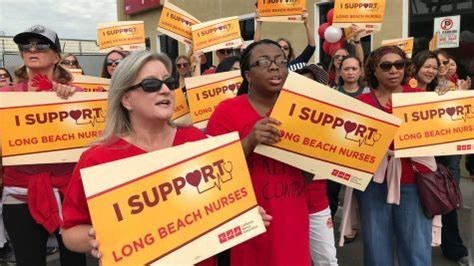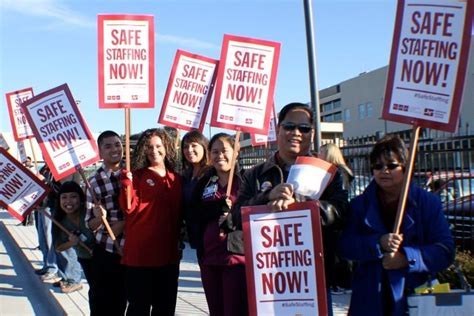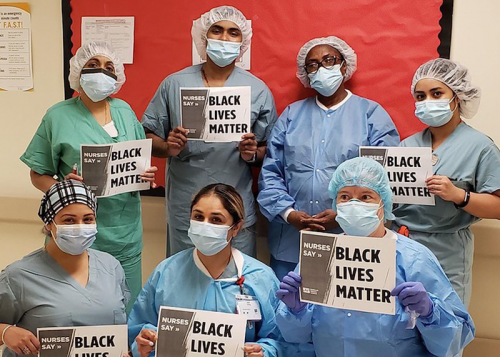Hope is invented every day. - James Baldwin
Racism Among Nurses is a Real Thing
Nurses on the non-caucasian spectrum of melanin content in their skin can tell you—if you ask. In this Summer of upheaval, we hear the headlines every day: Black lives matter, economic and racial inequities in COVID-19 care, police brutality, health care workers marching for justice for all, discrimination against immigrants—the list of troubles is long and complex. In all this turmoil, we want to make sure that we listen carefully, as nurses, to the stories our co-workers tell about their own experiences, because facts inform, but stories inspire.
Racial Discrimination: It is Real
I am a white, middle-aged nurse. I feel uncomfortable writing an article about racism experienced by my non-caucasian colleagues, but I would like to start a respectful conversation on this forum. I would like to hear your personal stories of times when you feel you might have been discriminated against because of the color of your skin.
I have been reading Ijeoma Oluo’s book, So You Want to Talk about Race? And, it’s hard stuff. No one enters the waters of a race discussion well. We all bring mounds of baggage to the table with us. We speak from our own limited perspective and we often lack the humility to truly listen to the people around us as they share their frustration and anger about how they are treated simply because of the color of their skin. We have a hard time allowing people who have suffered discrimination for years to tell their stories. We react sometimes by being defensive, by denying their emotional response, by walking away, even by closing down.
Oluo introduces the discussion about racism by telling a story of someone walking down the street, being repeatedly hit on the arm by passersby. The victim can’t leave. They don’t have the option of walking another way and are forced to suffer the pain and discomfort each time. Finally, someone, gesticulating wildly, hits his/her arm one more time, and it is the last straw. The victim lashes out angrily. The person gesticulating reacts defensively, of course, since they meant no harm. But the harm was already done many times over and the response was a spilling out of pent up rage, anguish, and pain. Her story spoke to me, because it is hard for us to listen well, to hear uncomfortable stories, especially when they come coated in a long history of abuse, discrimination, suffering—generations of it, really. We may not be the immediate cause, but by golly, being white, we are certainly part of the system that created the injustice to start out with.
White Privilege: It is Real
As a white, American nurse, I have benefitted, all my life, from white privilege, even though I have been largely unaware of it. The easements along the way may be small things, but in the scheme of life, they count.
“White people become more likely to move through the world with an expectation that their needs be readily met.”1
The system that perpetuates discriminatory behavior toward non-Caucasians, in general, and Blacks, specifically, has produced rotten fruit. The deaths of many innocents—Ahmaud Arbery, Breonna Taylor, George Floyd—have recently revealed anew the true danger of being Black in this country. Those dangers and disadvantages exist in the nursing community, as well. “Two studies examining racial/ethnic bias in RN promotions (Hagey 2001; Seago and Spetz 2005) found evidence of discriminatory practices that limited advancement opportunities for minority RNs."2
The systemic problems that lead to discriminatory practices in nursing are not going away overnight. Sadly, they are a product of lives lived in a system that perpetuates white wealth and advancement to the detriment of others. Changes will require a concerted effort on all our parts—especially in the white community—to be aware of inequities and do our best to put action behind our words of solidarity. Yes, we must pass laws, train and re-train, but we also must live awake and alert, watching for those unconscious biases that frame these differences from the beginning. We must find ways to learn more and to listen better. When our co-workers speak up, let’s believe them and not discount their stories of injustice. Let’s be careful of how we talk, the things we say casually, the hurtful putdowns that slide out unaware. Let’s pursue ways to help each other succeed because it is truly in our mutual success that we find the fulfillment we seek.
We Can Reinvent Hope
We can have the hope that James Baldwin assures us of in the quote at the top, but we must also let go of complacency, ignorance, and white privilege in nursing, while continuing the difficult conversations.
Will You Tell Your Story?
Maybe some of you can share your stories below. Let’s share and support one another respectfully as we try to come to a better place together in this anti-racism journey.
References
1 - What Is White Privilege, Really?
2 - Racial/Ethnic Pay Disparities among Registered Nurses (RNs) in U.S. Hospitals: An Econometric Regression Decomposition











herring_RN, ASN, BSN
3,651 Posts
I believed him, or at least gave him the benefit of the doubt when I heard him tell of the kindness of night shift nursing staff on the Merv Griffin Show. Please read the entire opinion piece.
Forgiving George Wallace By John Lewis Sept. 16, 1998
Mr. Wallace, first as a circuit judge and then as Governor, fought the civil rights movement with every fiber of his being. He was a demagogue whose words and actions created a climate that allowed for violent reprisals against those seeking to end racial discrimination.
As one of the leaders of the civil rights movement, I remember that George Wallace well. But the George Wallace who sent troops to intimidate peaceful, orderly marchers in Selma in 1965 was not the same man who died this week. With all his failings, Mr. Wallace deserves recognition for seeking redemption for his mistakes, for his willingness to change and to set things right with those he harmed and with his God.
Rarely does our country witness such a conversion by an elected official. Such a conversion of principle can be shaped only by courage and conviction...
... The very essence of the civil rights movement was its appeal to the conscience of those who beat us with batons, attacked us with dogs and stood defiantly at the schoolhouse door. We wanted our enemies to know that every blow they struck was a blow against another human being. The bloodshed that resulted was the blood of all humanity.
When I met George Wallace, I had to forgive him, because to do otherwise -- to hate him -- would only perpetuate the evil system we sought to destroy.
George Wallace should be remembered for his capacity to change. And we are better as a nation because of our capacity to forgive and to acknowledge that our political leaders are human and largely a reflection of the social currents in the river of history...
https://www.nytimes.com/1998/09/16/opinion/forgiving-george-wallace.html